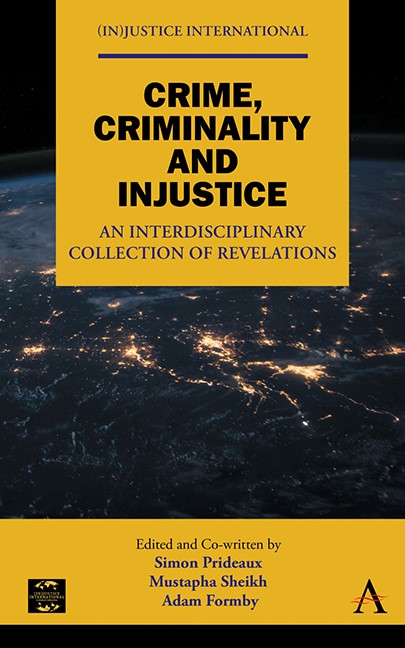Book contents
- Frontmatter
- Dedication
- Contents
- Acknowledgements
- List of Editors and Contributors
- Editor’s Introduction to the Book
- Part One Incarceration, Cultural Destruction and Ecocide: The Alienation of Ethnic Minorities, Nature and Indigenous Peoples
- Part Two The Impoverishment, Exclusion and Maltreatment of the Working Poor
- Part Three Disability, Poverty and Neglect
- Part Four Youth, Gender, Migration and Human Trafficking
- Concluding Remarks
- Index
Chapter Three - The Destruction of the Amazon: State-Corporate Ecocide
Published online by Cambridge University Press: 14 November 2023
- Frontmatter
- Dedication
- Contents
- Acknowledgements
- List of Editors and Contributors
- Editor’s Introduction to the Book
- Part One Incarceration, Cultural Destruction and Ecocide: The Alienation of Ethnic Minorities, Nature and Indigenous Peoples
- Part Two The Impoverishment, Exclusion and Maltreatment of the Working Poor
- Part Three Disability, Poverty and Neglect
- Part Four Youth, Gender, Migration and Human Trafficking
- Concluding Remarks
- Index
Summary
A Contextual Introduction
The Amazon is the most biodiverse ecosystem globally, home to 10 per cent of all plants and wildlife species and contains nearly a third of the Earth’s tropical rainforests (World Wildlife Foundation [WWF] 2021a). The Amazon plays a vital role in controlling the Earth’s carbon levels by regulating the general circulation of the atmosphere (Van Solinge and Kuijpers 2013; Thomson 2020). In addition, the Brazilian Amazon is the ancestral home of an estimated 310,000 indigenous peoples, with 280,000 of these living within environmentally protected reserves (Lutz 2021).
Despite the unparalleled significance of the Amazon, immense pressure has been placed upon this vulnerable ecosystem. Powerful corporations race to exploit natural resources and expand agricultural development contributing to unprecedented levels of global warming and climate change (White 2015). As a result, there are increasing global temperatures and atmospheric carbon dioxide levels, heightened frequency and scale of extreme weather (Kramer 2013). And as a consequence of environmental damage, global warming exerts exponential political, social and economic harms on humanity on a local and international scale leading to catastrophic environmental disasters which have accelerated animal and plant extinction (Kramer 2013).
In 2012, Brazil was leading in the fight against climate change, reducing deforestation rates in the Amazon by 84 per cent (Silva Junior et al. 2021). Moreover, Brazil’s involvement in the Action Plan for Prevention and Control of Deforestation in the Legal Amazon and the National Policy on Climate Change, committed Brazil to an 80 per cent reduction in Amazonian deforestation by 2020 (Silva Junior et al. 2021). However, since 2013, rates of Amazon deforestation have been rising, particularly in the last few years. In 2019, evidence shows a 34 per cent surge in deforestation compared to 2018, whereas in 2020 there was an additional 9.5 per cent (Amnesty International 2020a; Brazil’s National Institute for Space Research (INPE) in Silva Junior et al. 2021:144). This represented a deforestation rate that is 182 per cent higher in 2020 than Brazil originally committed to in 2012 under the National Policy of Climate Change agreement (Silva Junior et al. 2021:144).
With global consumption of meat rising exponentially, meat has become a new global commodity (Wasley et al. 2019).
- Type
- Chapter
- Information
- Crime, Criminality and InjusticeAn Interdisciplinary Collection of Revelations, pp. 37 - 54Publisher: Anthem PressPrint publication year: 2023

